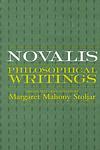Novalis
Novalis was the pseudonym of Georg Philipp Friedrich Freiherr von Hardenberg (1772–1801), a poet, author, and philosopher of early German Romanticism. His literary work is characterized by his innovative use of language and the mystical and romantic motifs that permeate his poetry and prose. Novalis's most famous work is 'Hymns to the Night,' a set of six lyrical poems that explore themes of love, death, and transcendence. He also made significant contributions to philosophy with his unfinished work 'The Novices of Sais,' which delves into his unique worldview that blends nature, philosophy, and spirituality.
Books
This list of books are ONLY the books that have been ranked on the lists that are aggregated on this site. This is not a comprehensive list of all books by this author.
-
1. Heinrich of Ofterdingen
This novel follows the journey of a young poet named Heinrich as he navigates through various dreamlike adventures in his quest for the Blue Flower, a symbol of inspiration and spiritual enlightenment. The book is divided into two parts, with the first part chronicling Heinrich's travels and encounters, and the second part delving into his philosophical and poetic musings. The narrative is imbued with elements of German Romanticism, mysticism, and symbolism, offering a deep exploration of the human soul and the nature of art and creativity.
-
2. Philosophical Writings
"Philosophical Writings" is a collection of works by a key figure in German Romantic philosophy. The book explores the author's thoughts on a wide range of subjects including art, religion, morality, nature, and the human mind. The author's poetic and imaginative style of writing is used to challenge traditional philosophical ideas and to propose a more holistic understanding of the world. The text is recognized for its deep insights and its significant influence on later philosophical and literary movements.
-
3. Hymns To The Night
"Hymns to the Night" is a collection of six prose hymns that delve into the profound depths of night as a metaphor for the mystical and the transcendent. The work reflects on the dichotomy between darkness and light, with the night representing a sanctuary from the rationality and order of the day. It is a deeply romantic text that celebrates the beauty and solace found in the nocturnal realm, where the spiritual and the eternal are felt more acutely. The hymns are a blend of personal longing, philosophical contemplation, and spiritual quest, expressing a yearning for the infinite and the reunion with a lost beloved, symbolizing the soul's journey towards oneness with the divine.
-
4. Aphorisms
This book is a collection of philosophical reflections and maxims that delve into the nature of human experience, art, and spirituality. The author, a prominent figure of early German Romanticism, uses concise and often poetic language to explore themes such as the interconnectedness of the universe, the role of the poet and the philosopher in society, and the pursuit of knowledge and self-awareness. The work is characterized by its depth and the author's belief in the power of imagination and the transcendental qualities of the human mind, offering readers a contemplative journey through a series of thought-provoking and introspective insights.



